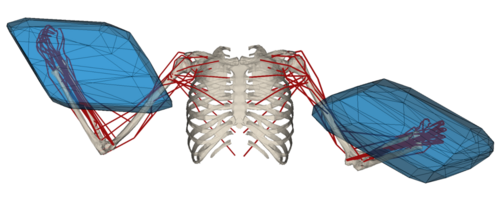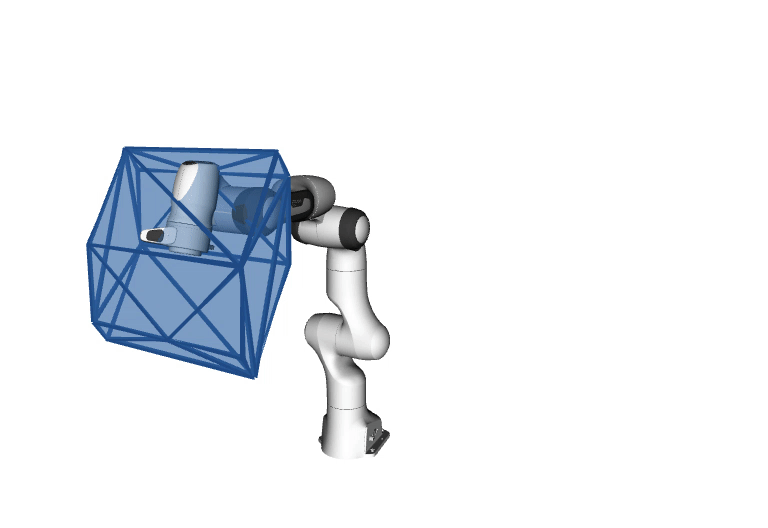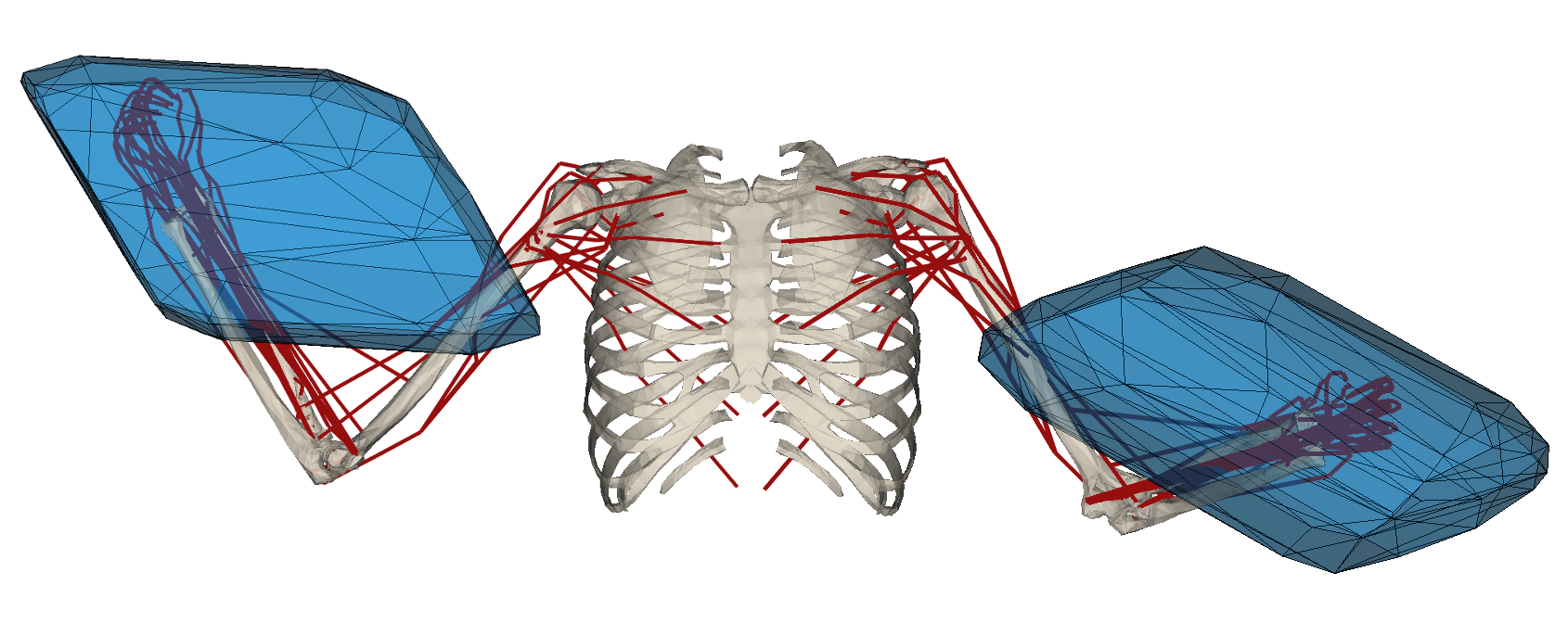Abstract This thesis is based on vision of the future where robotics and industry are centred around humans, emphasising collaboration between humans and robots rather than mere automation.
In this collaborative future, robots serve as active assistants, coexisting closely with humans and engaging in physical interactions to execute tasks. Such symbiotic systems leverage the unique abilities of both humans and robots, enhancing efficiency and prioritising human safety and well-being through personalised robotic assistance.
[Read More]
Reachable space of robotic manipulators has complex geometry and is often hard to characterise, therefore it is usually calculated in advance by the robot manufacturers and given as an image in their datasheets (as shown on the image on the right). However these images are hard to exploit as they are not analytical solutions to this problem. Even if we would have an analytical solution to this problem it would still not include in its consideration robot’s dynamics, its payload or its actuator torque limits.
[Read More]
Iterative convex hull is a polytope evaluation algorithm developed for the generic class of the linear algebra problems: $$ A\bm{x} = B\bm{y},\qquad \bm{y} \in [\bm{y} _{min}, \bm{y} _{max}] $$
This type of problems can be found in many different domains, one of them being the wrench capacity analysis of the human musculoskeletal models. In this paper the method overview is given as well as the verified on the assistive robotics scenario.
[Read More]
The Auctus team focuses on developing the robot control and analysis techniques suitable for human-robot physical interaction, taking in consideration the true limitations/capabilities of the robot and its human counterpart. In order to gather real-time knowledge about the human’s capabilities it is necessary to measure its posture (joint angles, positions,…) in real-time as well. More specifically, in many cases we are only interested in acquiring posture of a specific part of the human body, for example the upper body, or one arm.
[Read More]
Airbus is a European multinational aerospace corporation. Airbus designs, manufactures and sells civil and military aerospace products worldwide and manufactures aircraft in Europe and various countries outside Europe.
The collaboration aims to design a constellation of mini-satellites and one of the challenges is to rethink their production, in particular through robotic assistance of operators. In this project, we have developed a coupled model of human-robot physical capabilities.
[Read More]Hello everyone!
[Read More]
The LiChIE project (funded by BPI) aims to design a constellation of mini-satellites for optical Earth observation. Among many other topics, this requires to rethink the way sattelites are being produced in order to ease this highly complex process. There is actually an unprecedented economical and societal demand for robots that can be used both as advanced and easily programmable tools for automatizing complex industrial operations in contexts where human expertise is a key factor to success and as assistive devices for alleviating the physical and cognitive stress induced by such industrial task.
[Read More]



